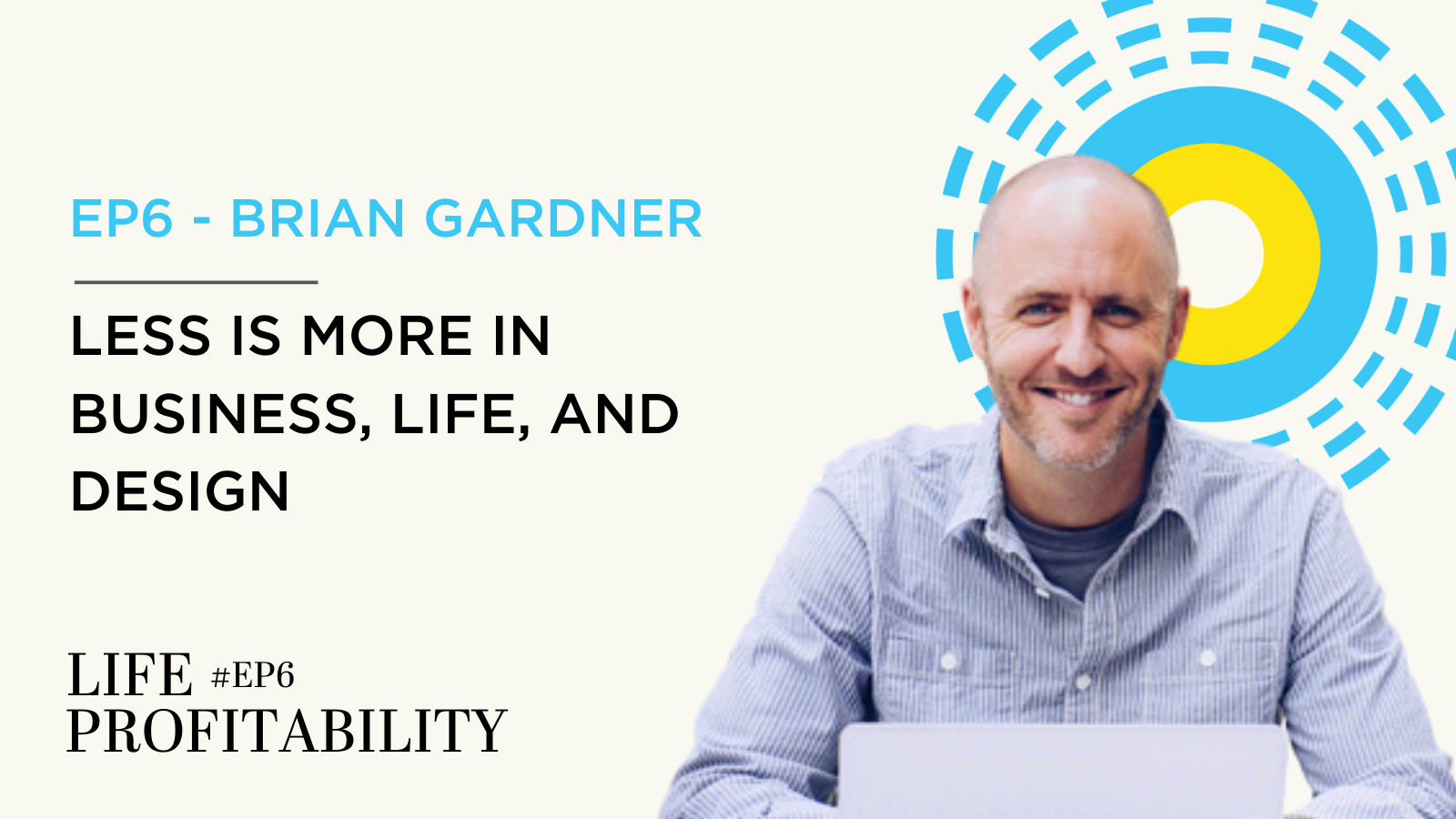Summary
Brian Gardner is a minimalist designer and internet marketer, the founder of StudioPress, and the “OG” of the premium WordPress ecosystem. In this episode Adii and Brian discuss their similar paths in business, living as a minimalist in life and business, side projects, and committing to new journeys.
Internet People
Brian had always wanted to be one of those “internet people” that could work from their computer at Panera or Starbucks. It all started when he began making WordPress themes as a side project. It didn’t take long, however, to realize that he was making more money on this side project than at his day job.
In 2006, Brian left work at an architectural firm to found StudioPress, a company that would specialize in WordPress premium themes and frameworks.
Premium themes, Brian says, should at least partially be credited for WordPress’ transformation into one of the most recognizable website building platforms around.
In 2010, StudioPress would merge with CopyBlogger. This decision would be birthed for a few primary reasons. Out of a fear of competition, this merger would be a defensive move. But more importantly, StudioPress had grown to a point where a change needed to be made in order for the company to thrive. The merger would allow for the onboarding of new people to do things Brian didn’t want to or have time to do.
Eight years after the merger the company sold to WP Engine, another strategic move. Brian’s instinct told him that it was the right time to make the move...while the brand was still valuable. He was exhausted from responsibilities and desperately wanted to start something new. However, he didn’t want to abandon StudioPress. The sale to the WP engine would ensure it would fall into the hands of someone who recognized its value and could invest in it what he no longer could.
Committing to Something New
“I think our culture now sort of defines success as not how much money you have, but just how much you make… there’s such a value placed on metrics.”
There is often a disagreeable convergence that must be faced by many artists: that between their title as both artist and entrepreneur. Suddenly, there becomes a part of the artistic process that includes trying to figure out how you can profit off of what you create. This process can be straining on the art. And at some point a fixed “filter” of “how can I profit?” can be placed uncomfortably over the artistic lens.
Brian often found there can be a difference between what you want to do and what you should do. Also, that monetizing your passion isn't always a good thing. Upon recognizing these sobering facts, he found himself putting on the “entrepreneur cap” to support his family.
Often, side projects worked as an escape from the monotony of entrepreneurialism.
Minimologie
“I started a few side projects that were really more not about making money, more about doing what I love, helping people in ways that I wasn't currently.”
Minimologie was a side project that Brian was extremely passionate about. He easily acquired the social media tags, the domain, all of it seemed to be falling into place. However, despite all of that, it didn’t. He had to ask himself, when something doesn’t “work” do you keep pushing or do you move onto the next thing?
Luck versus Skill
Brian feels very lucky for the success that he found with StudioPress. However, sometimes he has to step back and remind himself that it wasn’t all luck. There is a deep importance in differentiating between what is luck and what is a product of skill, savvy, and intelligence. He must often recognize that it was more than just luck--a great degree of work went into it too.
Minimalism
“Nothing is just simple anymore. Whether it’s life, family, business, there’s complexities everywhere.”
What is Enough?
There came a point where Brian forced his own hand to begin choosing less and prioritizing simplicity. He and his wife had built a 4000 sq. ft. dream home, and at the time, thought it was everything they’d ever wanted. But after a downfall with revenue in the company, he was forced to lay people off. What was once a dream became a total anxiety-inducing nightmare. With this transformation, he found that the answer isn’t always to make more money; it’s needing less.
Removing the Sidebars
Brian’s No Sidebar started out initially with the simple idea of removing the sidebars from his website and encouraging others to do so, too. This minimalist design preference eventually became a figure of speech that could be applied to all areas of life and work. One could remove sidebars from real life as well as on screen, ridding oneself of unnecessary things that are bad for well-being. No Sidebar became more than just a website; it became a way of living.
Brian “removes sidebars” in life by going on runs and taking long showers. These activities allow him to carve out time for himself, as well as brainstorm ideas. Some of his greatest epiphanies surrounding life, business, and design always seem to emerge during a run.
Removing sidebars, and ultimately practicing minimalism, must sometimes be done in baby steps—whether it be selling the big house that burdens you, or simply changing a small aspect of your daily routine. The minimalist mindset is all about progress and journey, and most importantly, understanding why you are doing it.

